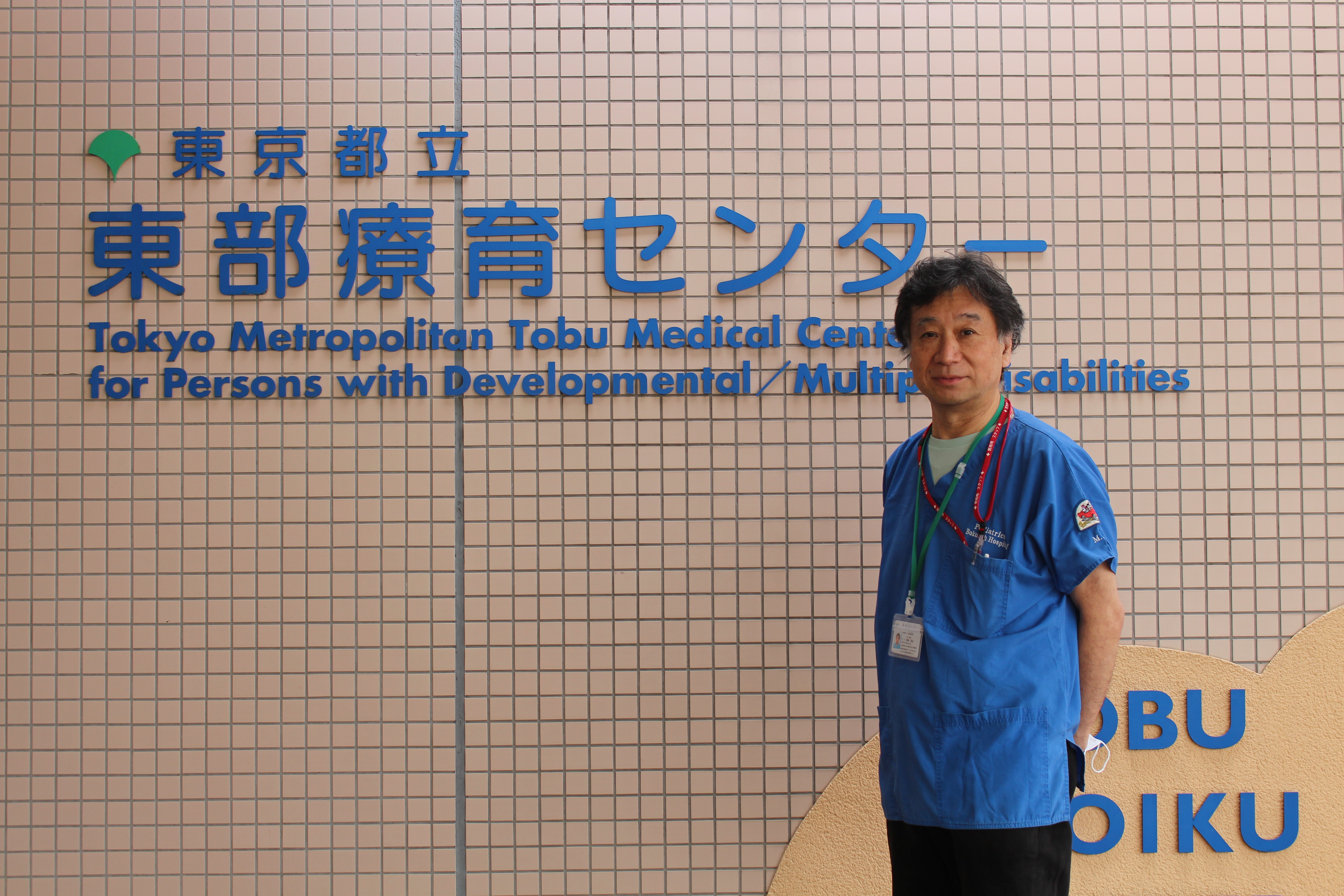Greeting from the Director
A message from the New Director April 1st, 2025

Masahiro, Ito, M.D, Ph.D
I am very honored and pleased to be a Director of Tokyo Metropolitan Tobu Medical Center for Children and Adults with Developmental disabilities.
Our center was established by the Metropolitan Tokyo Government in December 2005 as a core facility for providing medical care and welfare for people with severe motor and intellectual disabilities, living in the eastern part of the 23 wards of Tokyo. It is operated by a social welfare corporation named the Association for Protection of Children and Adults with Severe Motor and Intellectual Disabilities.
My career as a physician/child neurologist began and continued at some Tokyo Metropolitan Hospitals including Bokuto Hospital which locates very near to this Medical Center. I am happy to have come back to this area where I worked 27 years for patients. I also worked as the director of Tokyo Metropolitan Fuchu Medical Center for the Handicapped before taking up this position. I am thinking of this career of mine can make use for the work of this new position.
We provide long and short time residential services and day care for preschoolers and adults over18 years old with severe motor and intellectual disabilities who need extremely high level of medical and nursing care.
We also provide outpatient clinic and rehabilitation for children with developmental disabilities.
The fundamental philosophy of the National Association for the Protection of Children and Adults with severe motor and intellectual disabilities advocate a principle to “protect even the most vulnerable without exception.” All staffs work together to provide appropriate/comfortable daily life, rehabilitation and medical care which is tailored to each individual who use our facilities. Our goal is they would feel happy, joyful and safe, spending in our facilities.
We will celebrate the 20th anniversary of our center in 2025.
Thank you for visiting our Home Page.
We appreciate your continued support to us.
